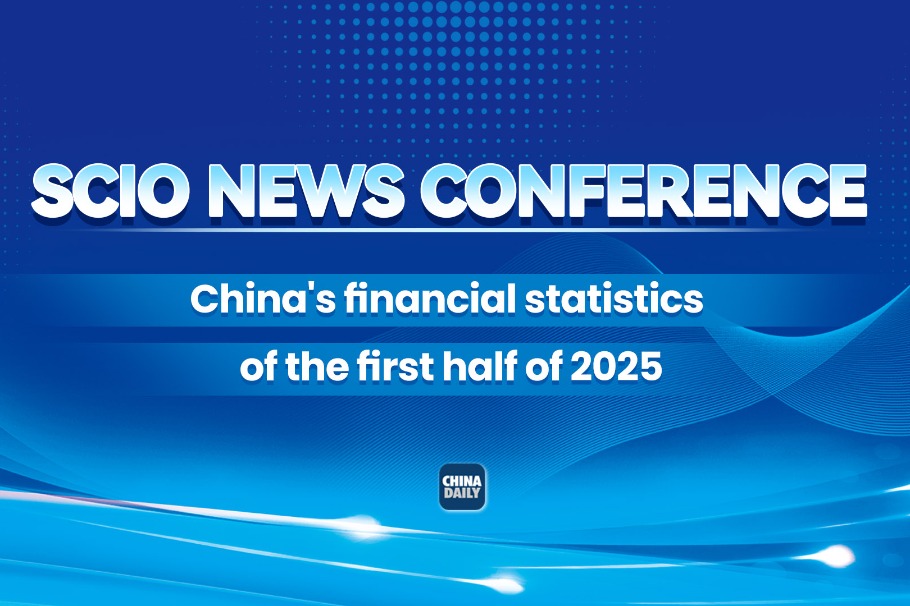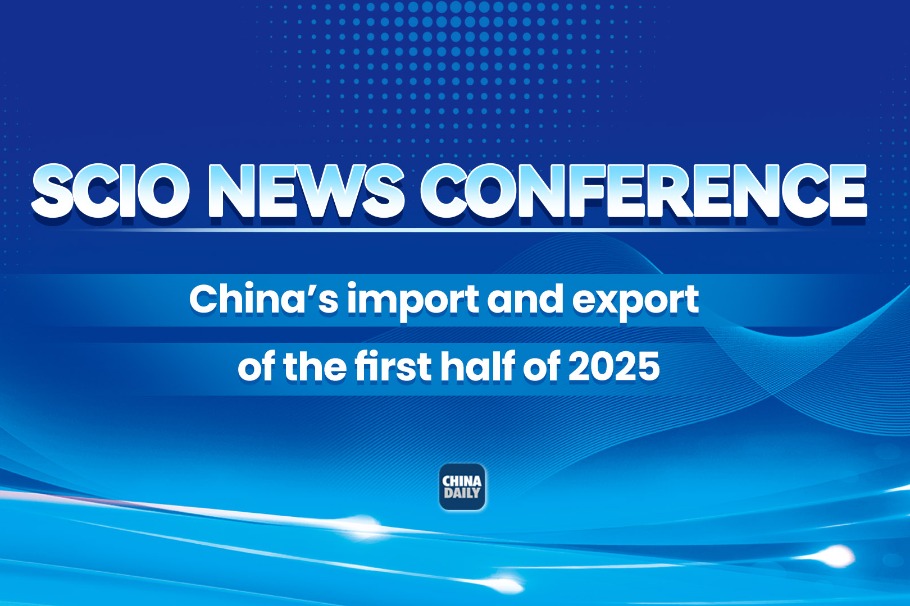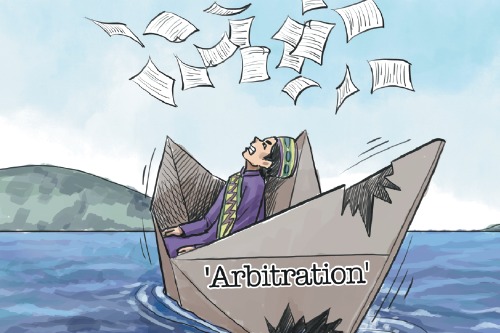Biden must not hype South China Sea issue


Now that the incumbent US president has nebulously conceded defeat in the US presidential election, Democratic candidate Joe Biden seems set to be sworn in as the 46th president of the United States on Jan 20.
But will a new US administration also mean a change in the US' foreign policy, especially its Asia-Pacific strategy?
If Biden were to become president, the US is likely to return to multilateralism, and its foreign policy will accord priority to "alliances" and "liberal democratic ideology". It is also likely that his national security team will include senior officials who served the Barack Obama administration. He has already named veteran diplomat Tony Blinken as the new secretary of state.
Policy toward China to remain in focus
But whether Biden will relinquish the Trump administration's Indo-Pacific strategy remains to be seen. Yet its Asia-Pacific strategy, especially its policy toward China, will continue to be the focus of US foreign policy. In an article published in Foreign Affairs in March 2020, Biden said: "The most effective way to meet that challenge (brought about by China) is to build a united front of US allies and partners."
Since the South China Sea issue has become a major cause of US-China disputes, the presidential transition in the US will have a big impact on the regional situation. To begin with, the US will try to maintain its military presence in the South China Sea, and strengthen its network of alliances and security partners against China, even though it may adopt a more balanced approach to military operations such as freedom of navigation operations.
That said, the policy goal of the US to maintain its military dominance in the South China Sea will remain unchanged. And to do so, the US will establish alliances and partnerships with other countries in the region, while consolidating its security alignment with its treaty allies such as Japan and Australia, and strengthen its "quasi alliance" with India, in order to curb China's rising national strength and expanding global influence.
Biden may boost ties with Manila
To consolidate its military presence in the region, the US under Biden's leadership is also likely to deepen its diplomatic and military ties with the Philippines, the most important ally of the US among the countries bordering the South China Sea. During the Obama administration, when Benigno Aquino III was the Philippine president, Manila was the main Washington ally stirring up the South China Sea issue. Manila and Washington even signed a 20-year Enhanced Defense Cooperation Agreement in 2014, under which the US can operate five military bases and thus increase its military presence in the Asia-Pacific region.
So Biden is likely to portray the improved US-Philippines military and security relations as a model for rebuilding other US alliances. Once the US manages to revive its partnership with the Philippines, China's differences and conflicts with not only the US but also the Philippines are likely to intensify.
The US may also renew its support to Vietnam's policy initiatives in the South China Sea, and the two countries' efforts to contain China will have a long-term impact on the regional situation.
Washington needs Hanoi on its side
The US needs Vietnam on its side in its strategic competition with China, and Vietnam needs to leverage US power to counterbalance China, in order to expand its foothold in the South China Sea. In 2012, during the Obama administration, defense secretary Leon Panetta became the most senior American official to visit former US air and naval base in Cam Ranh Bay after the end of the Vietnam War. And in May 2016, Washington lifted all arms embargos on Hanoi, putting bilateral defense relations on the fast track of development.
The US' South China Sea policy became more radical after Donald Trump took office in January 2017, with Secretary of State Mike Pompeo's statement on the South China Sea on July 13, 2020, indicating that Washington has completely reneged on its pledge to be neutral in the South China Sea disputes. Hence, there is reason to believe that the US and Vietnam could deepen cooperation over the South China Sea issue. It is also possible Washington will support Hanoi to seek international adjudication to settle the latter's maritime dispute with China.
Also, the US and Vietnam both could hype up the ruling by the arbitration tribunal, which refused to acknowledge China's legitimate rights in the South China Sea and passed an order in favor of the Philippines.
After the arbitration tribunal announced the award on July 12, 2016, Biden, then US vice-president, said publicly that, "we expect China to play by the same rules as everyone else" and that "we're urging both Beijing and Manila to abide by the ruling". The new US administration is likely to follow the same policy, even though the Philippines has reversed its stance on the tribunal ruling, and said the award will "take the back seat".
If countries in and outside the region keep hyping up the tribunal ruling, the situation in the South China Sea could return to what it was about five years ago. There is also a growing call in Vietnam for seeking international adjudication to settle its disputes with China. If indeed Vietnam seeks international adjudication and if the US keeps hyping up the tribunal ruling, the situation in the South China Sea could become extraordinarily tense.
Besides, consultations on the text of the South China Sea Code of Conduct face various challenges, and the uncertainties over reaching an agreement by next year are growing. And with the COC draft being in the second stage of reading, tensions and differences among the parties have gradually been exposed.
Pandemic has further increased uncertainties
Moreover, the COVID-19 pandemic has also increased the uncertainties over the COC, and the possibility of the Trump administration stirring up more trouble in the South China Sea in the transition period cannot be ruled out.
So how should Beijing manage the Sino-US conflicts in the South China Sea?
The lack of mutual trust between China and the US has weakened the bilateral crisis management mechanisms, increasing the risk of a conflict due to misunderstandings and/or misjudgments. Yet the two sides can still defuse the situation in the South China Sea.
First, both sides need to exercise self-restraint. The US should reduce its military operations in the South China Sea including freedom of navigation operations, surveillance, military exercises and building of military bases.
Second, the two sides should resume the military-to-military dialogue at the commander level, especially to clear any misunderstandings over military operations in the South China Sea, and discuss the feasibility of establishing a comprehensive crisis management mechanism.
Third, Washington should think twice before dragging the "Quad", the loose security alliance among the US, Japan, India and Australia, into the South China Sea issue, because if the US and its partners conduct joint military exercises in the South China Sea targeting China, Beijing will be forced to hold similar military drills targeting the Quad, which will only increase the risk of a conflict.
Fourth, the US should review its stance on the South China Sea disputes, and honor its pledge of remaining neutral on the issue.
US should not hype up arbitration tribunal ruling
Also, the US should stop asking China to abide by the ruling of the arbitration tribunal, because it has no jurisdiction over the China-Philippines dispute in the South China Sea given China's historical claim over the islands and reefs.
And the US should stop using Taiwan, which is an integral part of China, to undermine the country's rights and interests in the South China Sea, because that would further aggravate tensions across the Taiwan Straits and make the situation in the South China Sea more complex.
In conclusion, both sides should realize that defusing the tensions so that the disputes can be settled peacefully is in the interest of all parties.
The author is president of the National Institute for South China Sea Studies. The views don't necessarily represent those of China Daily.
































